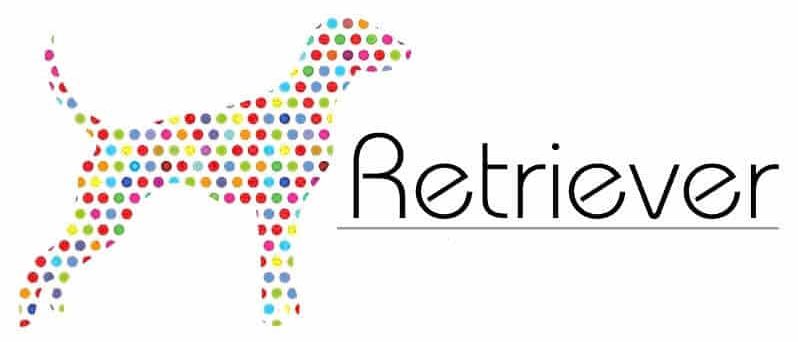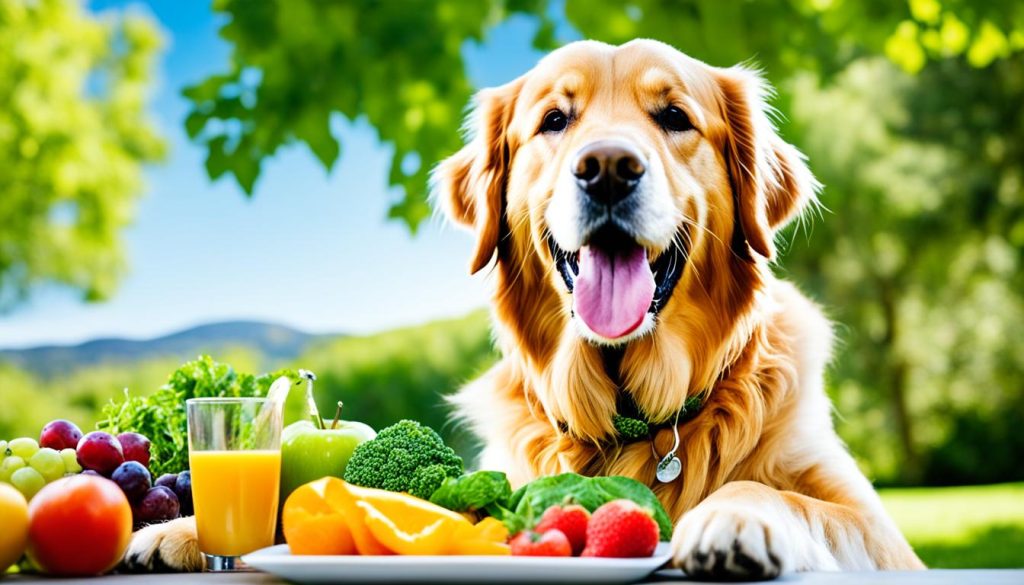The golden retriever stands as a profoundly beloved and universally acknowledged canine breed, effortlessly assimilating into family settings as both a pet and a companion. Their opulent fur, docile nature, and notable intelligence render the task of caring for golden retrievers profoundly gratifying for owners. Not merely confined to household joy, these dogs also excel as versatile working animals, engaging in numerous roles with dedication and proficiency. Ensuring they receive proper care is critical, empowering them to enjoy a dynamic, well life.
Golden retrievers thrive when their special needs are acknowledged with thoughtful care. In activities ranging from garden play to family outings, their health and affability blossom under attentive maintenance. As such, prioritising focused care for golden retrievers is imperative for all pet guardians. It encompasses a bespoke regimen of daily care, allowing each dog to fully realise their potential as a valued family member.
Key Takeaways
- Appreciating golden retrievers as both a devoted family pet and a versatile working dog is key to their care.
- Understanding and catering to the unique requirements inherent to the dog breed safeguards their well-being.
- Golden retriever care includes nurturing their signature gentle temperament for a harmonious home life.
- Appropriate nutrition, regular exercise, and preventive health measures are crucial for a healthy canine companion.
- A steadfast commitment to golden retriever care is essential for fostering a loyal and affectionate relationship with these amiable dogs.
The Golden Retriever: Understanding Your Canine Companion
The Golden Retriever, renowned as a popular breed, exemplifies the fusion of versatile working dog capabilities with a gentle temperament. This section scrutinizes the breed’s character and delineates methods to bolster their welfare within a familial setting.
Key Characteristics of the Breed
The intelligent retriever is celebrated for its loyalty and flexibility, cementing its status as a preferred breed. Their intelligence transcends mere ability, facilitating multifaceted roles from search-and-rescue missions to being empathetic companions.

Nurturing Your Golden Retriever’s Friendly Temperament
Golden Retrievers inherently possess an affable nature, making them ideal for those desiring a loyal friend. Positive reinforcement and stimulating activities play vital roles in nurturing their genial temperament and elevating their joy.
Socialisation and Training Essentials
Initiating socialisation at an early stage is imperative for Golden Retrievers. It smoothens their assimilation into the household as a friendly retriever. Concurrently, unequivocal and regular training is essential. It leverages their cognitive capabilities and cements the bond between the pet and its caregivers.
| Age Range | Socialisation Focus | Training Focus | Temperament Outcome |
|---|---|---|---|
| Puppy (0-6 months) | Introduction to various environments and people | Basic commands and obedience | Confident and adaptable |
| Adolescent (6-18 months) | Controlled exposure to other dogs and pets | Leash training and behaviour refinement | Sociable and well-behaved |
| Adult (18+ months) | Continued engagement with outside stimuli | Advanced training and mental stimulation | Mature and dependable companion |
Essential Health and Nutrition for a Loyal Friend
For those who cherish a golden retriever, acknowledging and upholding its well-being is crucial. This breed, a family pet renowned for its companionship and fidelity, flourishes with attentive care. Owners must adopt a comprehensive strategy that encompasses a nutritional diet, consistent exercise, and regular health assessments.
Nutrition customised for golden retrievers is vital for their dynamic existence. Their dietary needs shift with age, activity rate, and health status. It’s imperative to provide high-quality dog food that’s protein-rich and balances carbohydrates and fats adeptly. This is to sustain their shiny coat and vitality.
Regular exercise is indispensable, benefiting both physical and mental health. Engaging in activities that align with their inherent instincts, such as fetch, swimming, and extensive walks, ensures a balanced temperament. This approach mitigates risks associated with obesity and ennui-based behaviours.
Healthcare necessitates routine veterinarian visits for immunisations, pest management, and wellness screenings. Addressing and identifying congenital conditions early, including hip dysplasia and heart ailments, substantially improves their life quality.
| Age | Dietary Focus | Exercise | Health Check-up |
|---|---|---|---|
| Puppy (0-12 months) | High protein, calorically dense | Short, frequent walks/playtime | Monthly for vaccinations and growth assessments |
| Adult (1-7 years) | Balanced adult formulation | Daily walks, structured play, and training | Yearly for comprehensive exams |
| Senior (8+ years) | Lower calorie, joint supporting supplements | Gentle, regular exercise suited to mobility | Bi-yearly for senior health evaluations |
Mental well-being is as imperative as physical health, yet often disregarded. Stimulating a golden retriever’s intellect with puzzles, teaching new commands, or scent games wards off cognitive deterioration. It keeps them intellectually acute.
In conclusion, to grant your golden retriever a fulfilling existence, view them not merely as pets but as loyal friends and crucial family members. Attentively catering to their dietary, physical, and healthcare needs fortifies a profound bond and cultivates a joyous household environment for your valued companion.
Conclusion
In concluding our journey through the comprehensive care of the golden retriever, it’s clear that committed stewardship ensures their prosperity. Exploring the friendly temperament of this canine reveals its role in solidifying a loyal companionship, thereby improving life for both the pet and its owner. It’s essential to provide attentive care to their unique needs, enabling these dogs to experience a life characterized by joy and well-being.
A balanced approach to health and nutrition stands at the core of a golden retriever’s wellness. Owners encounter the gratifying endeavour of offering a nutritious diet, sufficient exercise, and the mental engagement these bright creatures need. By integrating regular veterinary visits, one can protect the physical and mental health of this esteemed breed. Such responsibility affirms the golden retriever’s role as an integral family member, not just a pet.
The significance of socialisation and systematic training is paramount in developing a well-adjusted golden retriever. These aspects nurture a composed and cheerful nature, ensuring these dogs integrate into a lifestyle embracing openness and warmth. This discussion on care, diet, and social involvement captures the spirit of conscientious pet guardianship, enhancing readers’ understanding of cultivating a profound connection with their golden retrievers. Adopting these educated practices nurtures the shared joy between humans and their golden companions.
FAQ
What are the primary needs of a golden retriever?
A balanced diet, regular physical activity, and companionship fulfil the primary necessities of golden retrievers. These components cater to their intelligent, sociable characteristics. Paying attention to their gentle temperament and ensuring frequent health assessments are pivotal as well.
How can I nurture my golden retriever’s friendly temperament?
Encouraging a golden retriever’s amiable nature demands positive reinforcement and a stimulating milieu. Engage them in varied play and provide continuous companionship. Crucially, early socialisation is essential for their evolution into well-balanced pets.
Why is socialisation and training important for golden retrievers?
Early and sustained social interactions endow golden retrievers with confidence and commendable conduct, averting potential behavioural concerns. Intelligent training fortifies a harmonious relationship, rendering them both versatile working animals and steadfast allies.
What kind of health issues should I look out for in my golden retriever?
Certain ailments like hip and elbow dysplasia, cardiac conditions, and diverse skin allergies are more prevalent in golden retrievers. Vigilance for symptoms of these maladies and prompt veterinary consultation is imperative.
What type of nutrition is best for a golden retriever?
Optimal nourishment for golden retrievers comprises high-grade proteins, vital fats, and essential nutrients. Variances in their diet depend on age, energy expenditure, and health status. A veterinarian’s guidance on an apt feeding regimen is advisable.
What are the exercise needs of a golden retriever?
This active breed thrives on daily physical exertion to maintain both fitness and mental acuity. They enjoy walks, runs, playtime, and retrieval exercises, aligning with their innate predispositions.
How do I ensure the mental well-being of my golden retriever?
Mental engagement for golden retrievers is achievable through interactive playthings, training drills, puzzles, and consistent social interactions. Stimulating their intellect is vital for their comprehensive health.
Can golden retrievers adapt to different types of households?
Given their adaptable nature, golden retrievers flourish in varied domestic settings. Their fundamental requirements—affection, physical activity, and mental engagement—must be met. They seamlessly integrate into families and are equally suited for active individuals.
How often should I take my golden retriever to the vet?
Annually scheduled veterinary appointments are advisable for adult golden retrievers, with increased frequency for puppies and elder canines. Preventative measures, including immunisations, parasite prevention, and health assessments, are essential.
What should I consider before getting a golden retriever as a pet?
Prior to adopting a golden retriever, evaluate your lifestyle, available time for pet care, and household atmosphere to ensure compatibility with this energetic and affectionate breed. Acknowledge the substantial commitment of time, vitality, and resources they necessitate.

